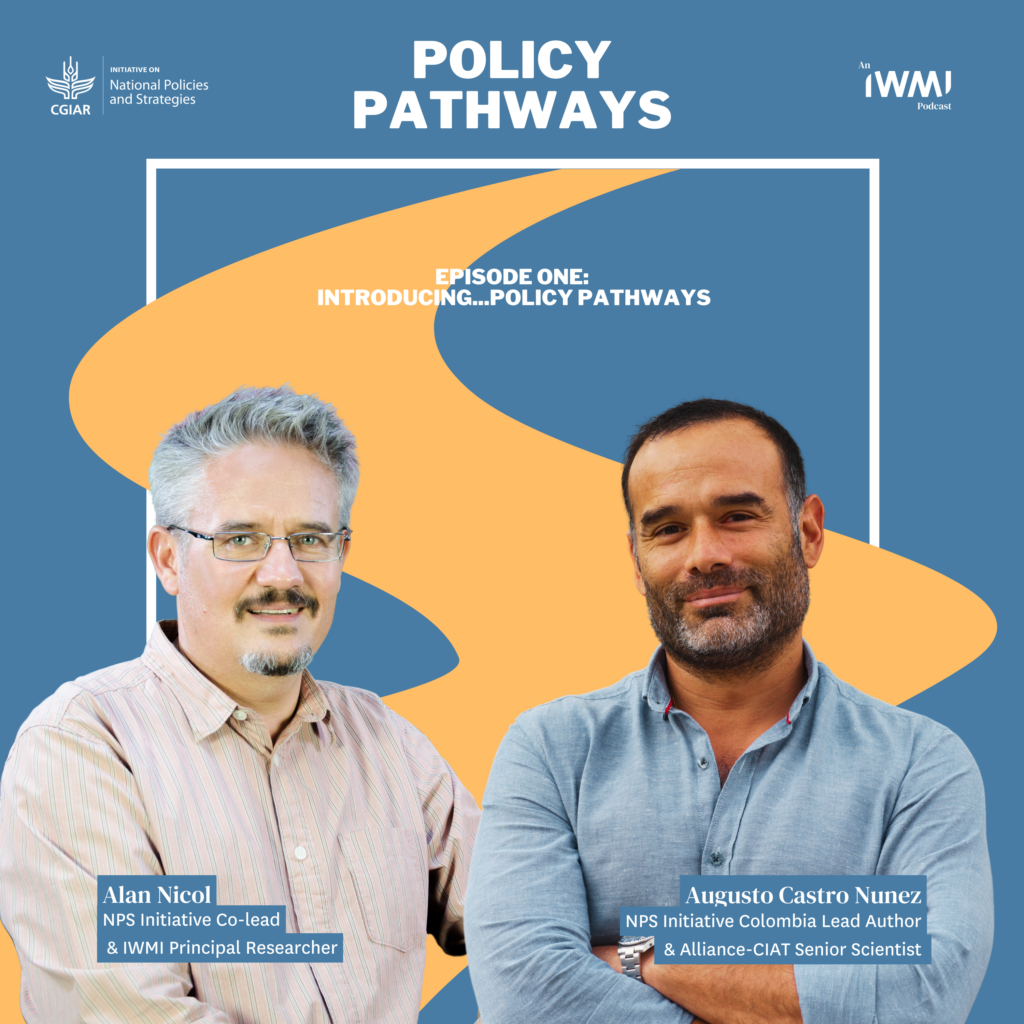New podcast explores policy coherence and system transformation in food, land and water
-
From
CGIAR Initiative on National Policies and Strategies
-
Published on
06.02.24

Policy Pathways, produced by IWMI, examines policies for sustainable development and climate resilience in six countries.
Overcoming future sustainable development challenges will require significant transformations in food, land, and water systems. However, the challenges faced by countries are varied and complex. Produced by IWMI, the Policy Pathways podcast will examine the policy coherence of food, land, and water systems in six of the CGIAR’s National Policies and Strategies Initiative countries.
To explore the policy processes shaping the sustainable development landscape, CGIAR’s National Policies and Strategies Initiative (NPS) commissioned reports in six countries – Colombia, Egypt, India, Kenya, Laos and Nigeria. As the reports make clear, policy coherence is hard, but essential to future food, land, and water security in a climate crisis. Our new podcast, Policy Pathways, will help provide insight into the relationships between research-based evidence and policy complexity.
Why should you tune in?
Produced by IWMI and bringing together NPS initiative report authors and policy professionals, each episode of Policy Pathways focuses on a specific country; examining the findings of the report from the perspective of an expert deeply embedded in policy environments and the researchers delivering policy analysis. The series asks: what are the food, land, and water systems challenges faced in specific national environments, and how important is policy coherence as a result? What key factors have shaped the design of policy, and grassroots policy outcomes? Above all, how can policy coherence be strengthened in the future?
Who are our hosts?

Policy Pathways is co-hosted by experienced journalists Chhavi Sachdev and Raissa Okoi. Based in Mumbai, India, Chhavi Sachdev has been podcasting since 2008 and is the founder of Sonologue Podcasting, a production house responsible for producing some of India’s seminal podcasts. As a journalist, Sachdev focuses on the environment, sustainability, and human rights. She has worked for internationally reputable broadcasters including the BBC World Service, Public Radio International, and Deutsche Welle. Originally from Senegal, Raissa Okoi is a journalist, host, and presenter based in London, England. Okoi is passionate about African sociopolitical issues and has years of experience reporting on business and development in francophone Africa. Most recently Okoi spent five years as a reporter and senior journalist with the BBC in Dakar, Senegal.
The series creator and executive producer of Policy Pathways is Dr. Alan Nicol; NPS Co-lead and IWMI principal researcher. Dr. Nicol features in Episode One; ‘Introducing… Policy Pathways,’ alongside Senior Scientist at Alliance-CIAT, Augusto Castro Nuñez. The inaugural episode sets out to explore what we mean by Policy Pathways and why policy coherence is so important for sustainable development.
Where and when can you find Policy Pathways?
The first installment of Policy Pathways will be available from the 7th of February, with episodes released on Wednesdays every two weeks from that date. Follow this link to the Policy Pathways access episodes and instructions on how to find the podcast on your favorite podcast app.
Studio production for Policy Pathways is by Wild Dog, our program editor is Andrew Johnstone, with production coordination from Luisa Chantler Edmond.
First posted on IWMI’s website
This work is part of the CGIAR Research Initiative on National Policies and Strategies (NPS). CGIAR launched NPS with national and international partners to build policy coherence, respond to policy demands and crises, and integrate policy tools at national and subnational levels in countries in Africa, Asia, and Latin America. CGIAR centers participating in NPS are The Alliance of Bioversity International and the International Center for Tropical Agriculture (Alliance Bioversity-CIAT), International Food Policy Research Institute (IFPRI), International Livestock Research Institute (ILRI), International Water Management Institute (IWMI), International Potato Center (CIP), International Institute of Tropical Agriculture (IITA), and WorldFish. We would like to thank all funders who supported this research through their contributions to the CGIAR Trust Fund.
